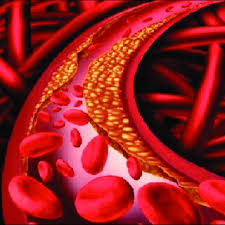Nuclear stress tests play a role in diagnosing heart disease. This non-invasive procedure helps assess how well blood flows through the heart, providing critical information about its health and function. By combining exercise or medication with imaging technology, doctors can identify potential issues that might otherwise go unnoticed. Understanding the benefits of nuclear stress tests helps both healthcare providers and patients make well-informed decisions regarding heart health.
Offering Insight into Heart Function
A nuclear stress test provides valuable insight into the heart’s performance under stress. While the heart may function well at rest, stress from exercise or medication reveals hidden issues like reduced blood flow or damage. During this test, a small amount of radioactive dye is injected, allowing imaging technology to highlight areas of the heart receiving adequate blood supply. This detailed view helps medical professionals assess conditions such as coronary artery disease or damage from a previous heart attack.
Identifying Coronary Artery Disease
Identifying coronary artery disease is one of the primary benefits of stress tests. This condition, caused by plaque buildup in the arteries, restricts blood flow to the heart muscle. Left untreated, it may lead to chest pain, shortness of breath, or even a heart attack. Tests help detect restricted blood flow by evaluating images captured both at rest and after stress. Comparing these images reveals whether blockages are present and how they may be affecting the heart.
The accuracy of this detection method allows doctors to recommend appropriate interventions. These may include lifestyle changes, medications, or additional tests. Early detection also reduces the likelihood of future complications, contributing to better outcomes.
Monitoring the Progress of Treatments
Tests are often used to monitor the effectiveness of treatments or interventions targeting heart disease. After treatment for conditions like coronary artery disease or after undergoing procedures such as stenting or bypass surgery, a stress test helps evaluate whether blood flow has improved. The imaging reveals how well the heart is functioning post-treatment and whether the chosen approach has been practical. This ongoing assessment aids healthcare providers in identifying any additional measures that might be needed. Continuous monitoring ensures treatments are adjusted as necessary, enhancing long-term heart health.
Assessing Risk Before Surgery
Stress tests are frequently performed before non-cardiac surgeries, especially in patients with known or suspected heart conditions. Surgery places physical stress on the body, which can pose a risk to individuals with compromised heart health. Conducting a stress test evaluates whether the heart has sufficient blood flow to withstand surgery, reducing the risk of complications. This evaluation ensures surgeons and medical teams are better prepared, leading to safer outcomes for patients with heart concerns. It also provides clarity on whether additional precautions are necessary, benefiting both healthcare teams and patients.
By identifying potential issues before symptoms appear, stress tests can promote preventive health efforts. Early detection of reduced blood flow or blockages encourages patients to adopt healthier lifestyles. These lifestyle changes, such as increased physical activity, balanced diets, or managing chronic conditions like diabetes, can improve heart health and lower the risk of future complications. For healthcare providers, early identification of risks provides an opportunity to educate patients about heart health. Offering personalized advice based on test results fosters a more proactive approach to overall well-being.
Take a Nuclear Stress Test for Heart Health
Stress tests serve as a reliable tool for diagnosing and managing heart disease. Their ability to reveal restricted blood flow, assess treatment progress, and evaluate surgical risk provides actionable insights for healthcare professionals and patients alike. Incorporating nuclear stress testing into heart health evaluations enhances the capacity to detect and manage conditions early, resulting in better outcomes.

Leave a Reply